Question And Answer
Publications
Articles, publications, books, tools and multimedia features from the U.S. Institute of Peace provide the latest news, analysis, research findings, practitioner guides and reports, all related to the conflict zones and issues that are at the center of the Institute’s work to prevent and reduce violent conflict.
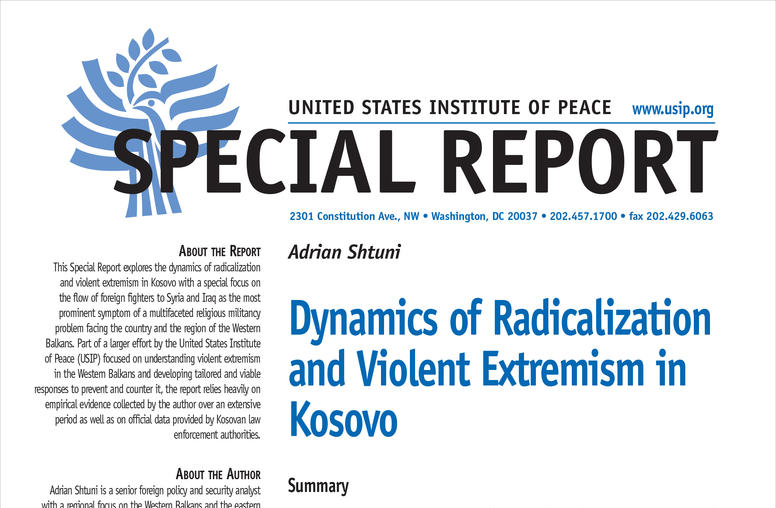
Dynamics of Radicalization and Violent Extremism in Kosovo
Relying in large part on primary empirical evidence, this report explores the dynamics of violent extremism in Kosovo and the disproportionately high number of radicalized fighters from the region in Syria and Iraq. Examining the historic, cultural, geopolitical, and socioeconomic factors behind the phenomenon, it focuses on the flow as a symptom of a larger religious militancy problem within the country and offers recommendations on countering that challenge.
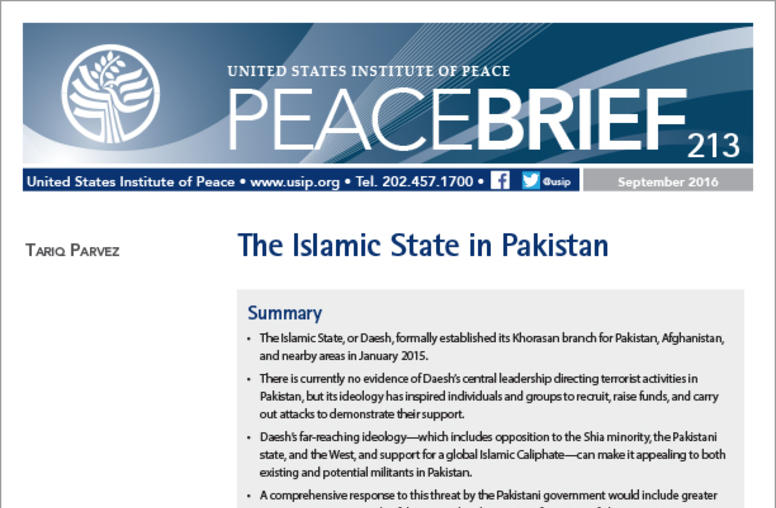
The Islamic State In Pakistan
The Islamic State, or Daesh, has moved its influence beyond Iraq and Syria, formally establishing its Khorasan branch in Central Asia in January 2015. This brief explores Daesh in Pakistan, how its ideology can influence both existing and potential militants, and what a comprehensive response from the Pakistani government would involve.
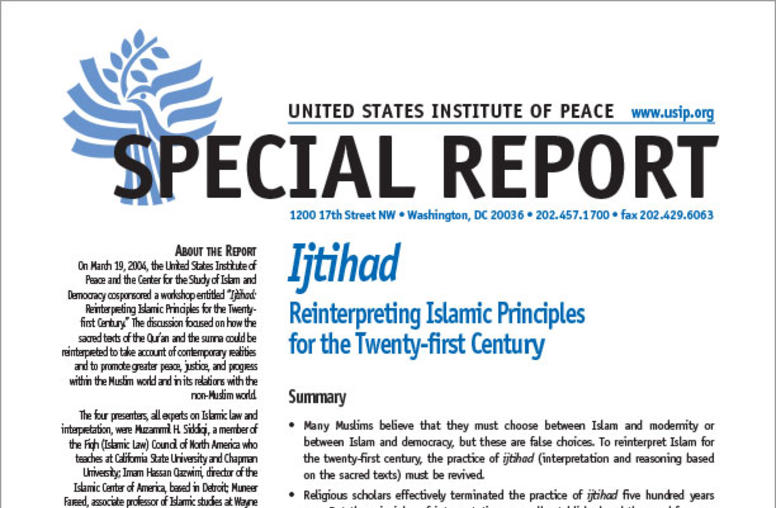
Ijtihad: Reinterpreting Islamic Principles for the Twenty-first Century
Summary Many Muslims believe that they must choose between Islam and modernity or between Islam and democracy, but these are false choices. To reinterpret Islam for the twenty-first century, the practice of ijtihad (interpretation and reasoning based on the sacred texts) must be revived. Religious scholars effectively terminated the practice of ijtihad five hundred years ago. But the principles of interpretation are well established and the need for contemporary interpretation is co...
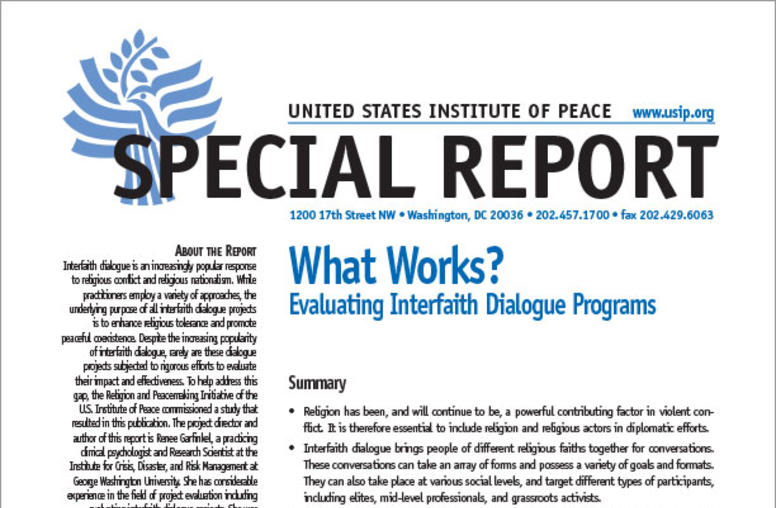
What Works? Evaluating Interfaith Dialogue Programs
Summary Religion has been, and will continue to be, a powerful contributing factor in violent conflict. It is therefore essential to include religion and religious actors in diplomatic efforts.
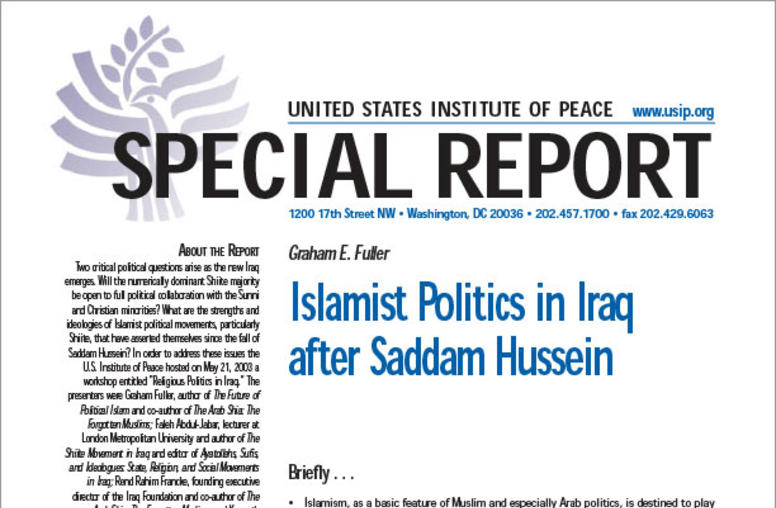
Islamist Politics in Iraq after Saddam Hussein
Two critical political questions arise as the new Iraq emerges. Will the numerically dominant Shiite majority be open to full political collaboration with the Sunni and Christian minorities? What are the strengths and ideologies of Islamist political movements, particularly Shiite, that have asserted themselves since the fall of Saddam Hussein?
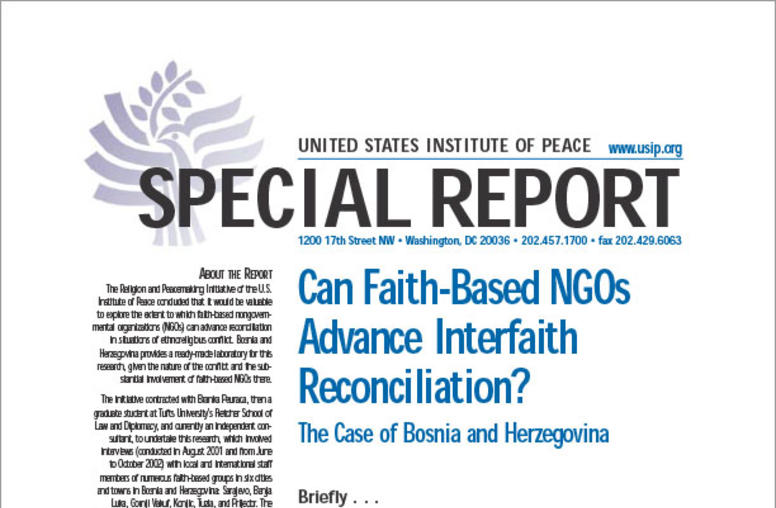
Can Faith-Based NGOs Advance Interfaith Reconciliation? The Case of Bosnia and Herzegovina
Summary Reconciliation can be an immense challenge in the pursuit of sustainable peace. Progress toward postconflict reconciliation is being made in Bosnia and Herzegovina, as evidenced by some previously unthinkable recent events. Some early initiatives toward promoting interfaith reconciliation undertaken by international actors were not well conceived and proved counterproductive.
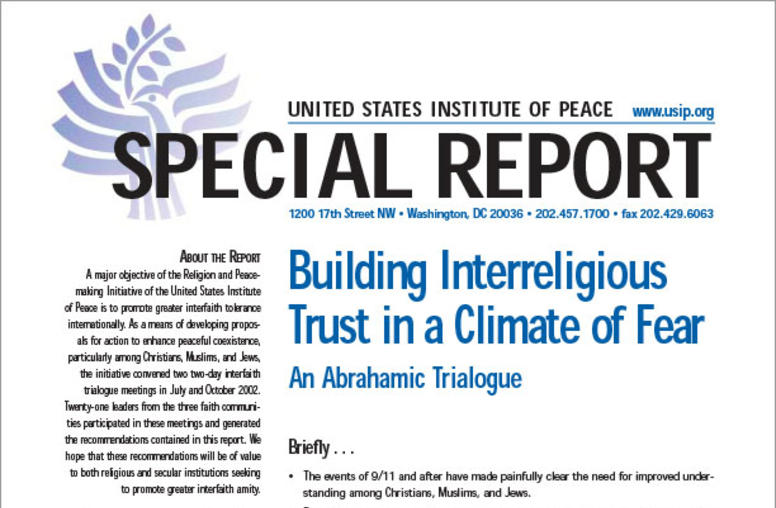
Building Interreligious Trust in a Climate of Fear: An Abrahamic Trialogue
Summary The events of 9/11 and after have made painfully clear the need for improved understanding among Christians, Muslims, and Jews. Participants in the meeting advocated that interfaith dialogue be conducted at all levels of religious hierarchies and across all segments of religious communities.
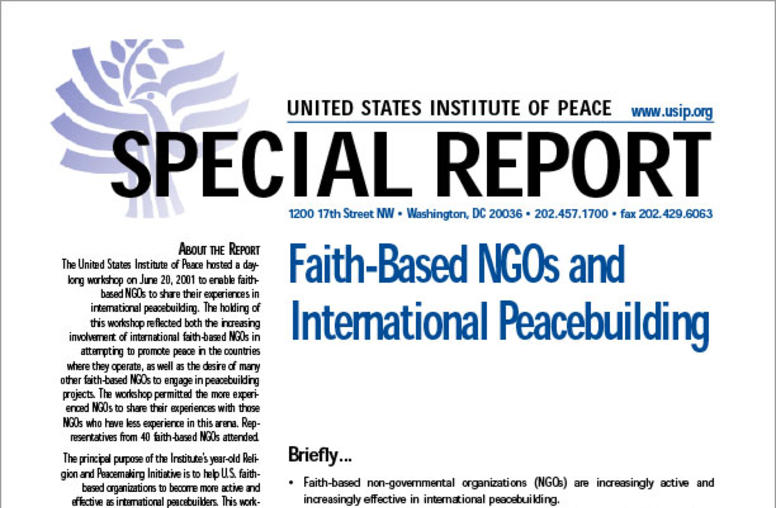
Faith-Based NGOs and International Peacebuilding
Summary Faith-based non-governmental organizations (NGOs) are increasingly active and increasingly effective in international peacebuilding. Faith-based organizations have a special role to play in zones of religious conflict, but their peacebuilding programs do not need to be confined to addressing religious conflict.
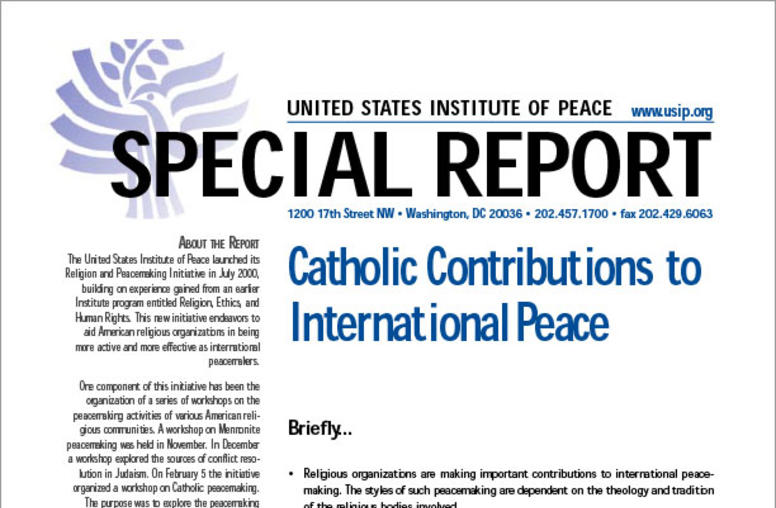
Catholic Contributions to International Peace
The United States Institute of Peace launched its Religion and Peacemaking Initiative in July 2000, building on experience gained from an earlier Institute program entitled Religion, Ethics, and Human Rights. This new initiative endeavors to aid American religious organizations in being more active and more effective as international peacemakers.
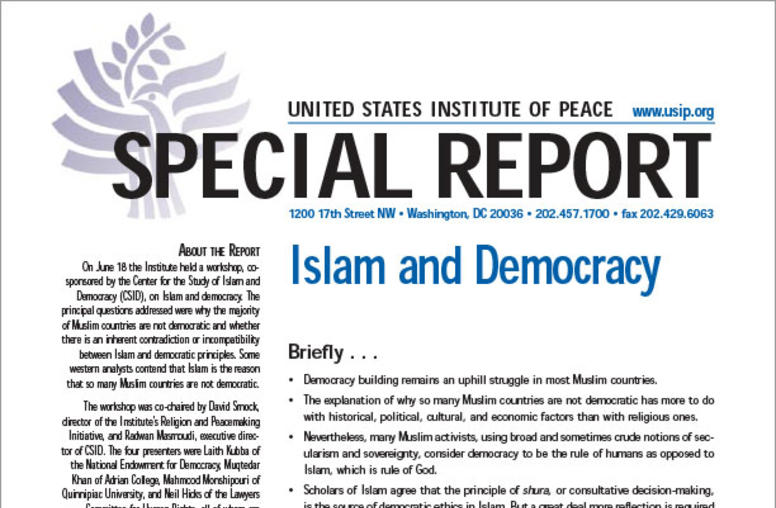
Islam and Democracy
Summary Democracy building remains an uphill struggle in most Muslim countries. The explanation of why so many Muslim countries are not democratic has more to do with historical, political, cultural, and economic factors than with religious ones. Nevertheless, many Muslim activists, using broad and sometimes crude notions of secularism and sovereignty, consider democracy to be the rule of humans as opposed to Islam, which is rule of God.